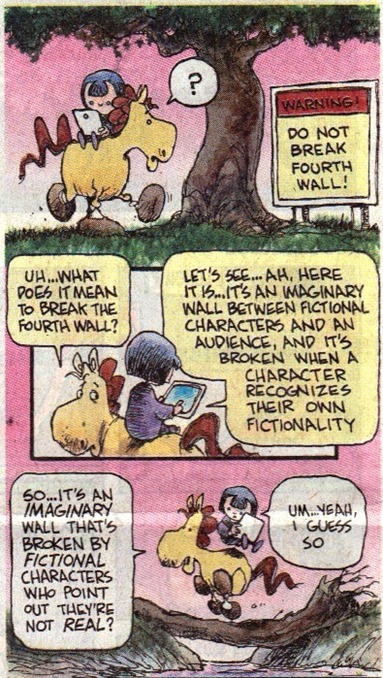Adam Blatner
Words and Images from the Mind of Adam Blatner
Don’t Break the Fourth Wall?
Originally posted on December 1, 2013
The “fourth wall” is a term in drama that recognizes that spectators watch an enactment by players who behave as if there is no one watching, as if the walls of the stage are not transparent—especially the imagined wall that is really the open space between the stage and the audience. That imagined wall is the 4th wall. But of course, actors have been “breaking the fourth wall” at least since Shakespeare—characters coming out and addressing the audience, as if to say: “Look, this is a play. I’m just a performer. Don’t be scared by the action here, it’s just an act.”
Kids don’t need a fourth wall to play at kill each other, eat each other, be killed (and die in dramatized agony), and so forth. It’s understood as not really real. It’s understood that you’ll stop playing if it gets too real, and I wouldn’t want that. (In the sexual play of grownups that involves sadism and masochism, this line is stretched, but there are still signals of what is too much.)
Anyway, as I say, dramatists and comics cartoonists have been playing with this boundary for a long time—it’s not a common device, but far from unknown. Recognizing that what is drawn is a comic strip, sometimes climbing on the edges, tearing them off, acknowledging that the characters are just cartoons, or maybe being ambiguous about this—I see this as a growing part of human awareness that we are not only the players but also playwrights, constructing our reality—with your agreement, if you please.
In this comic strip by Wiley, the theme is made explicit, and even includes an allusion, in the part below, to other comics artists who also break the fourth wall.
Really, what if there are layers upon layers, and your consciousness is to the eventfulness in your dreams as the next super-conscious level (of angels?) are to your ordinary light. What if there’s a continuum of awakening and those who claim to be enlightened may simply have experienced ordinary reality as relative, as something on the way to dream-like, though more awake, but not really really awake. And of course, the possibility exists that there may be even more awake states than that, states that defy description. It’s hard for any level of consciousness to even be aware of much less describe a consciousness more encompassing than one’s own. Said another way: A pickpocket at a convention of saints will only see their pockets.


Leave a Reply